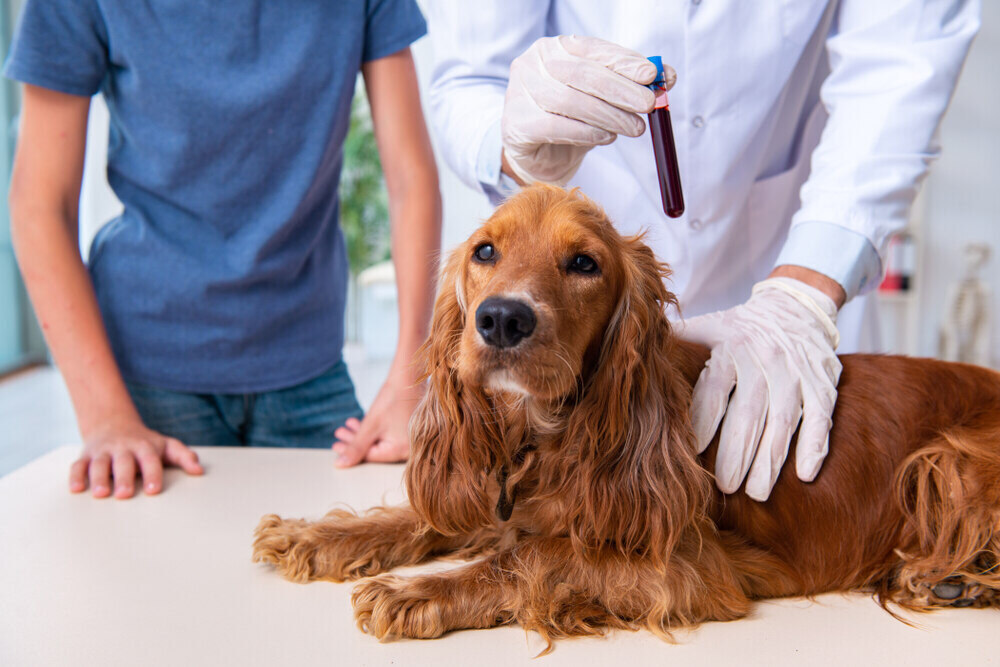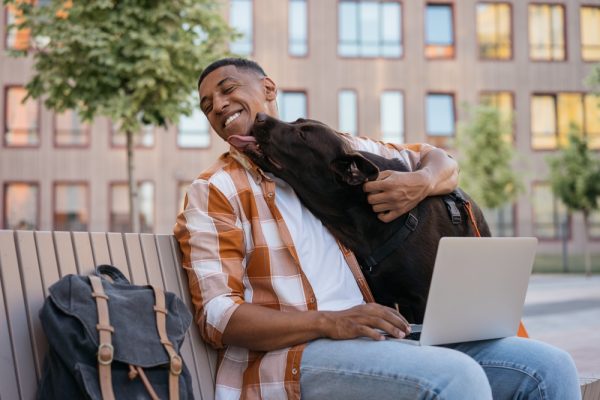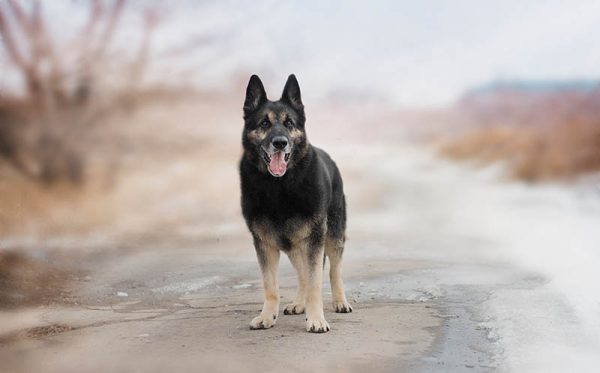Accidents happen, but when one happens to your pet on a holiday, it can lead to disaster if you’re caught off-guard with your regular vet off-duty. The holidays are a time of celebration but also stress for our four-legged buddies since they don’t understand all the excitement going on. With stressful distractions like flashy decor, strange friends or family visiting, and more, the potential for a holiday emergency is stronger than you’d think.
If the worst happens to your pet on a holiday, you should immediately call a vet or an emergency animal hospital. They will ask you to describe your emergency and advise you on whether your pet needs to come in for further medical care. Many 24/7 animal hospitals and clinics will also operate on holidays, but you should check by calling just to make sure. If you’re unsure of how to access veterinary care on holidays, give a vet a ring. Many have after-hours voicemails with referrals to emergency clinics.
For a bit more about what exactly constitutes a pet emergency and how to prevent them in the future, scroll down below with us.

What Is Considered a Pet Emergency?

Emergencies are immediate threats to your pet’s life. This can range from being hit by a vehicle to exhibiting extremely erratic behavior or a laundry list of other potentially life-threatening catastrophes.
For a more comprehensive idea of what constitutes an emergency and when to call a vet or an emergency clinic, refer to our list below. The list, however, is not exhaustive and is not meant to replace direct veterinary advice and clinical exam, so please consult with a veterinarian if your pet has any signs or issues outside of the ones listed below.
Did you know you can speak to a veterinarian without having to travel? Just head over to PangoVet. It's our online service where you can talk to a vet online and get the advice you need for your pet — all at an affordable price!

Emergency Conditions in Pets:
| Open wounds or burns: |
Severe bites, cuts, and burns should be immediately treated by a vet so they can heal properly and stave off the risk of infection.
|
| Persistent bleeding: |
Wounds of any size that won’t stop bleeding should be considered emergencies and require swift care.
|
| Pale gums: | White or pale gums can be a sign of extreme anemia, internal bleeding, blood loss, shock, dangerously low blood sugar, and/or dehydration—all emergencies in their own right. |
| Broken bones: | No matter the cause, suspected broken bones mean an immediate trip to a vet, as they will cause impaired mobility and significant pain if left untreated. |
| Respiratory distress: | If your pet is wheezing, choking, coughing, breathing heavily, or having any respiratory difficulty, they need to see a vet ASAP. |
| Toxins: | Eating any chemical, chocolate, onion, garlic, raisins or other known hazardous substances requires immediate care to counteract. |
| Excessive vocalizing: |
Pets cry or whine when they’re in pain, and persistent loud vocalizations are a sign that something is wrong.
|
| Ate a foreign object: | Eating toys or holiday decorations can cause a foreign blockage in the stomach or intestines that requires urgent medical intervention. |
| GI problems: | Persistent diarrhea, blood in the stool, black stools, complete lack of appetite, vomiting after eating or drinking that does not resolve within a few hours, vomiting blood, or distended stomach with retching and non-productive vomiting should be checked by a vet as soon as possible, with the last one being life threatening and needing urgent veterinary attention. |
| Impaired mobility or neurological deficits: |
This includes uncoordinated movement (ataxia), tremors, and paralysis in the limbs.
|
| Seizures: | Seizures can be a sign of epilepsy or other serious neurological conditions in dogs. |
| Electrical shocks: |
Electrical shocks can cause serious burns and respiratory distress and, in extreme cases, lead to cardiac failure.
|
Preventing Holiday Pet Emergencies
As with most emergencies, it’s preferable to prevent them from occurring in the first place. A little prep work and careful vigilance can literally save your pet’s life, and really, can you ever be too careful? To help you plan your holidays with your pet’s safety in mind, check out some safety tips for the holidays below.
- Look up and write down the phone number and address of a 24/7 animal hospital or clinic as close to your home as possible.
- Consider investing in pet insurance to help manage unexpected financial costs as a result of your pet getting hurt or sick.
- Stay up to date with your pet’s vaccinations and have a copy of their health records on hand.
- If an emergency occurs, stay as calm as possible so your pet doesn’t become stressed, which can worsen acute health problems.
- Keep your pet’s routine as normal and regular as possible amidst any holiday chaos happening at your home.
- Avoid tinsel decorations—The stuff is very dangerous to pets if ingested.
- Choose plastic decorations or put your precious glass ornaments on high interior branches of your tree out of pet reach.
- Supervise your pet around the tree, to avoid them chewing or swallowing any of the ornaments.
- Secure any Christmas trees with weighted bases and keep your lights out of pet reach or covered with protectors.
- Promptly pick up holiday gift wrap or other excessive debris caused by the holidays so it can’t become a hazard to your pet.
- Turn off fireplaces, candles, space heaters, and other major heat sources when not in use.
- Keep your pet put away during holiday dinners so nobody accidentally sneaks them table scraps.
- Turn holiday lights off when you’re not present so your pet isn’t tempted to play with them.
- Hide electrical cords inside your Christmas tree, behind furniture, or along walls with command strips.
- Keep your pet confined to a room or crate when you have lots of guests coming for holidays. This reduces the chances of them running away or getting hit by a car, or eating inedible things or table scraps.
- Take an inventory of any cleaning agents, toxic foods, medications, or chemicals and secure these behind locked doors or in childproofed cabinets.
- Purchase a pet first aid kit that contains things like bandages, gauze, and vet approved wound cleaners or saline.

Conclusion
A holiday emergency is a nightmare for any pet parent, and it’s scary when you’re not certain how to deal with it or if any vet is open. Save yourself some trouble and write down the number of a trusted 24/7 emergency vet or animal hospital, then take measures to pet-proof your holiday decor against intrepid pet adventures.
Featured Image Credit: Elnur, Shutterstock




















